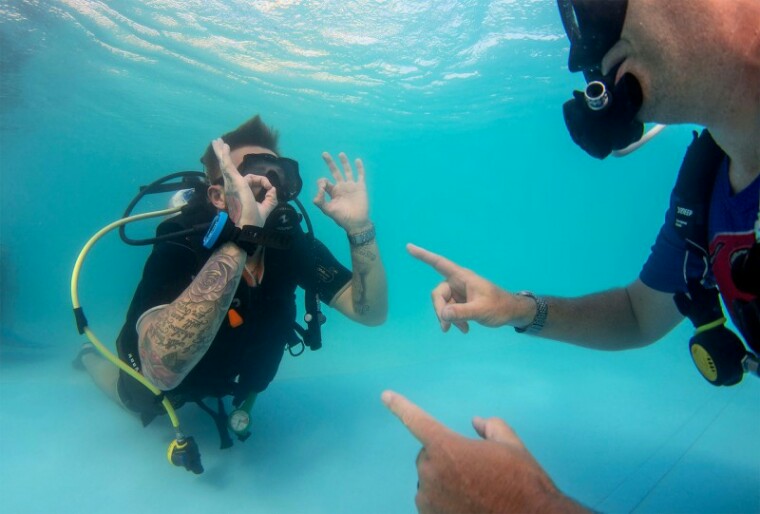
A seminal study into the therapeutic benefits of scuba diving by students from the University of Sheffield’s Medical School has been published…
The study is published in the Journal of Disability and Rehabilitation under the title: “Can scuba diving offer therapeutic benefit to military veterans experiencing physical and psychological injuries as a result of combat? A service evaluation of Deptherapy UK.”
 |
Get weekly jobs and transition advice. Unsubscribe anytime. |
A research team set out to explore the effectiveness of scuba diving in providing therapeutic and rehabilitative benefit to ex-Service personnel who have experienced traumatic physical and/or psychological injuries resulting from combat.
The study took the form of a service evaluation of Deptherapy, the UK-based charity offering support to military veterans who have experienced life-changing injuries. Deptherapy provides scuba diving qualifications, consisting of theory and practical diving experience, to participants alongside a Buddy Peer Support scheme that provides continuing support to veterans.
A total of 15 male veterans were invited to take part in the study, which took place in 2016 but has only just been published. The methodology comprised retrospective and current quantitative measures of mental well-being and functional ability, utilising the General Health Questionnaire-28, and subsequent semi-structured interviews with participants, their families and health professionals.
Participants reported an improvement in levels of anxiety, depression and social functioning, and a reduction in insomnia, following their involvement in organised scuba diving activities. In particular, the positive perceptions, as indicated from the interviews, were more pronounced in those whose injuries were predominantly psychological, rather than physical.
The study concluded that scuba diving can offer significant therapeutic benefits, particularly for ex-military amputees experiencing co-morbid anxiety and/or chronic psychological adjustment disorders such as PTSD, notably in terms of improvements in social dysfunction and the symptology of depression.
Psychologist and Deptherapy Vice President Richard Castle, who undertook a supervisory role during the study, said: “This has been a crucially important piece of research and demonstrates the positive impact that the Deptherapy model can have for ex-Service personnel who have experienced life-changing physical and mental injuries.
“Crucially, the study also identifies areas where Deptherapy can improve the level of support we offer, and the study recommendations have already been taken forward by the Deptherapy Board. We now need additional resources to monitor the impact going forward, and commission further independent longitudinal research and to widen the evidence base to assess the results of the developments we have initiated.”

